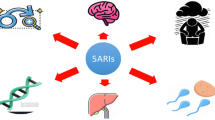
Sexual health is a crucial aspect of overall well-being, yet it is often overlooked in discussions about health and medication. Many individuals may not realize that certain medications can have significant effects on sexual function. This blog explores how various medications can impact libido, the side effects associated with them, and options for managing these effects.
The Link Between Medication and Sexual Dysfunction
Medications can influence sexual health in several ways. Some can directly affect libido and arousal, while others may cause side effects that indirectly impact sexual performance. Understanding these effects is essential for individuals who are experiencing changes in their sexual health after starting a new medication.
Common Medications Affecting Libido
Several categories of medications are known to impact sexual function, including:
- Antidepressants:
- Selective Serotonin Reuptake Inhibitors (SSRIs): Commonly prescribed for depression and anxiety, SSRIs (e.g., fluoxetine, sertraline) can lead to decreased libido and difficulties in achieving orgasm.
- Tricyclic Antidepressants (TCAs): These older antidepressants can also cause sexual side effects, including reduced sexual desire.
- Antihypertensives:
- Medications used to manage high blood pressure, such as beta-blockers and diuretics, may lead to erectile dysfunction (ED) and diminished libido.
- Hormonal Medications:
- Hormonal treatments, including some contraceptives, hormone replacement therapy (HRT), and medications for prostate cancer, can affect testosterone levels and impact sexual desire.
- Antipsychotics:
- Certain antipsychotic medications can cause sexual side effects, including reduced libido and difficulty achieving orgasm, due to their influence on neurotransmitter systems.
- Opioids:
- Long-term use of opioid pain medications can lead to hormonal imbalances, resulting in decreased sexual desire and performance issues.
Side Effects of Medications on Sexual Function
The side effects of medications that can affect sexual health include:
- Decreased Libido: A reduced interest in sexual activity, which can affect intimate relationships.
- Erectile Dysfunction (ED): Difficulty achieving or maintaining an erection can be distressing for both partners.
- Delayed Orgasm: Some individuals may experience challenges in reaching orgasm, impacting sexual satisfaction.
- Vaginal Dryness: Women may encounter vaginal dryness, which can lead to discomfort during intercourse.
These side effects can lead to emotional distress, anxiety, and relationship issues, making it crucial for individuals to address these concerns with their healthcare providers.
Managing Medication-Related Sexual Dysfunction
If you suspect that your medication is affecting your sexual health, consider the following steps:
- Consult Your Healthcare Provider:
- Openly discuss your concerns about sexual side effects with your doctor. They may adjust your medication, switch you to an alternative, or change the dosage to alleviate these issues.
- Consider Timing:
- Sometimes, adjusting the timing of when you take your medication can help mitigate side effects. For example, taking certain medications at night may reduce daytime sexual side effects.
- Explore Alternative Medications:
- If your current medication is causing significant sexual dysfunction, ask your healthcare provider about alternative medications that may have fewer sexual side effects.
- Lifestyle Changes:
- Incorporating healthy lifestyle changes, such as regular exercise, a balanced diet, and stress management techniques, can improve sexual health and overall well-being.
- Therapy and Counseling:
- If sexual dysfunction is causing distress or impacting your relationship, consider seeking help from a therapist or counselor who specializes in sexual health. They can provide coping strategies and support.
- Sexual Aids:
- Explore the use of lubricants, sexual aids, or medications specifically designed to enhance sexual function, if appropriate.
Conclusion
Understanding the effects of medication on sexual health is essential for maintaining a fulfilling intimate life. While certain medications can lead to sexual dysfunction, open communication with healthcare providers and proactive management strategies can help mitigate these effects.
If you are experiencing sexual health issues related to medication, do not hesitate to reach out to your healthcare provider for guidance. Remember, addressing these concerns is vital for both your sexual well-being and overall quality of life.

